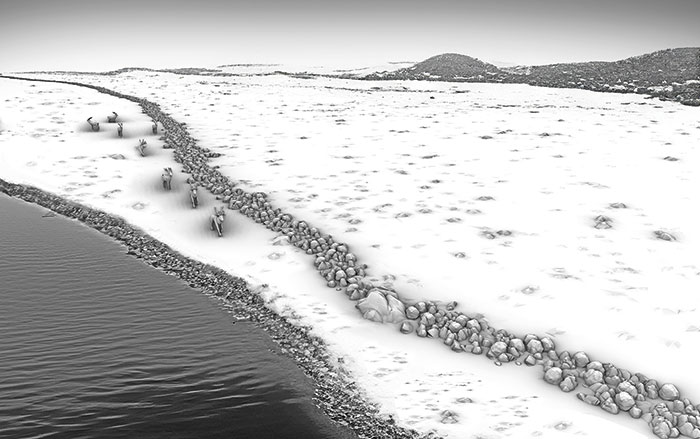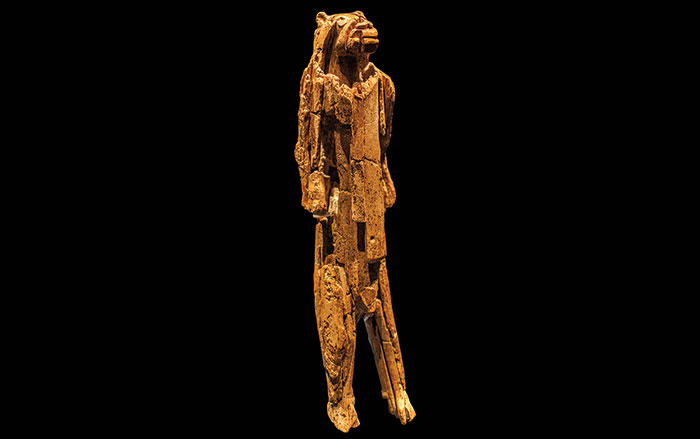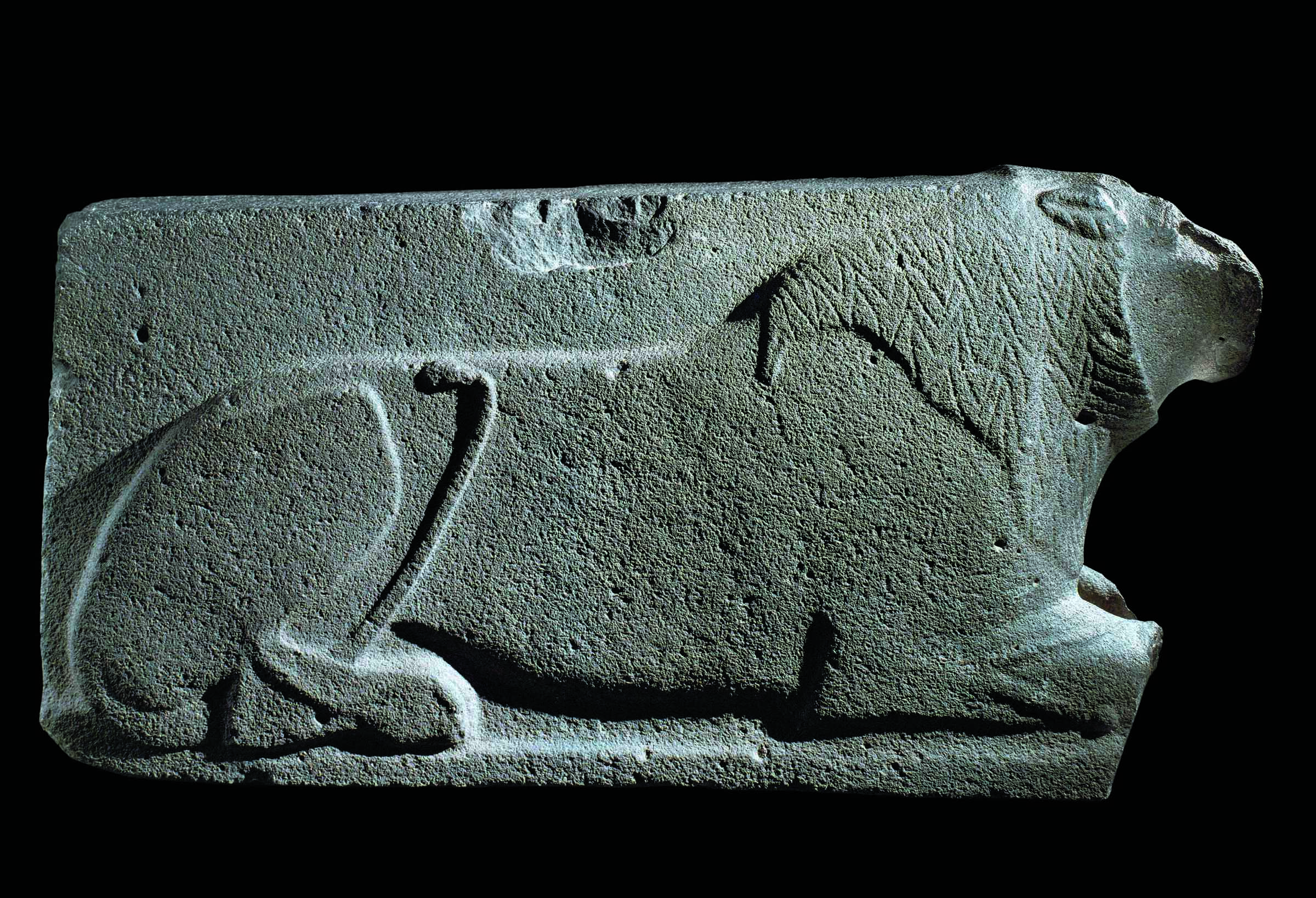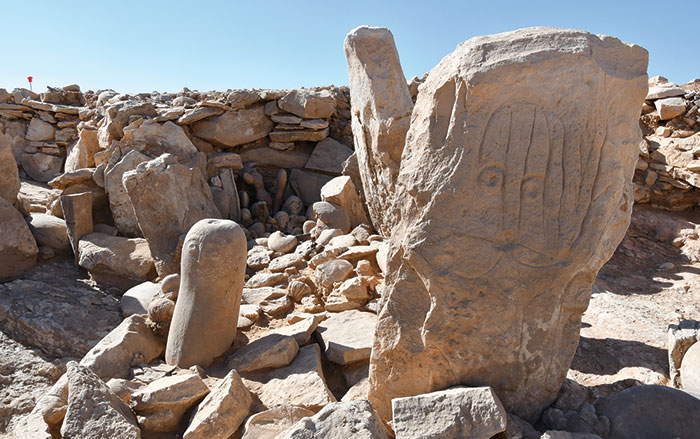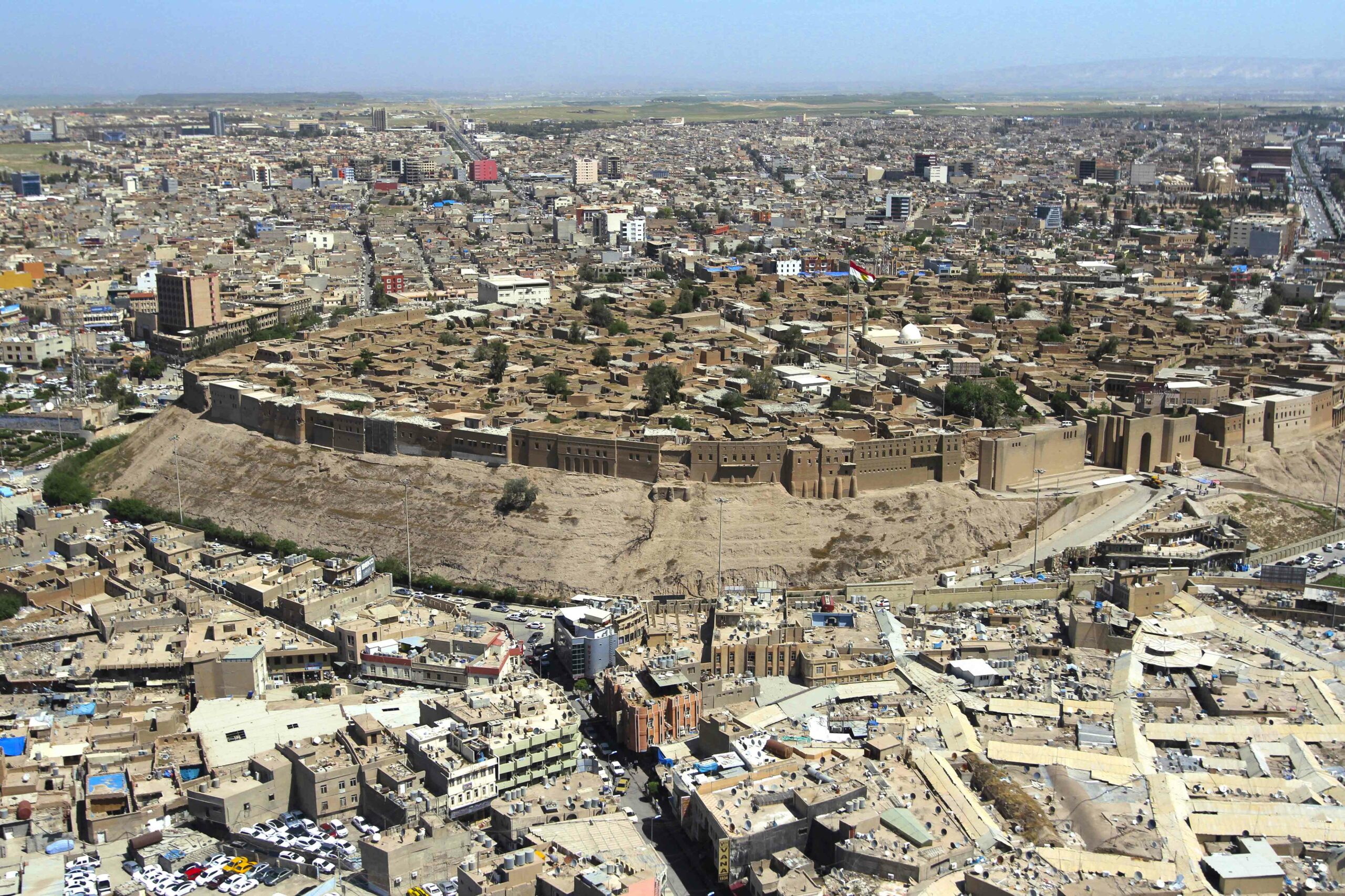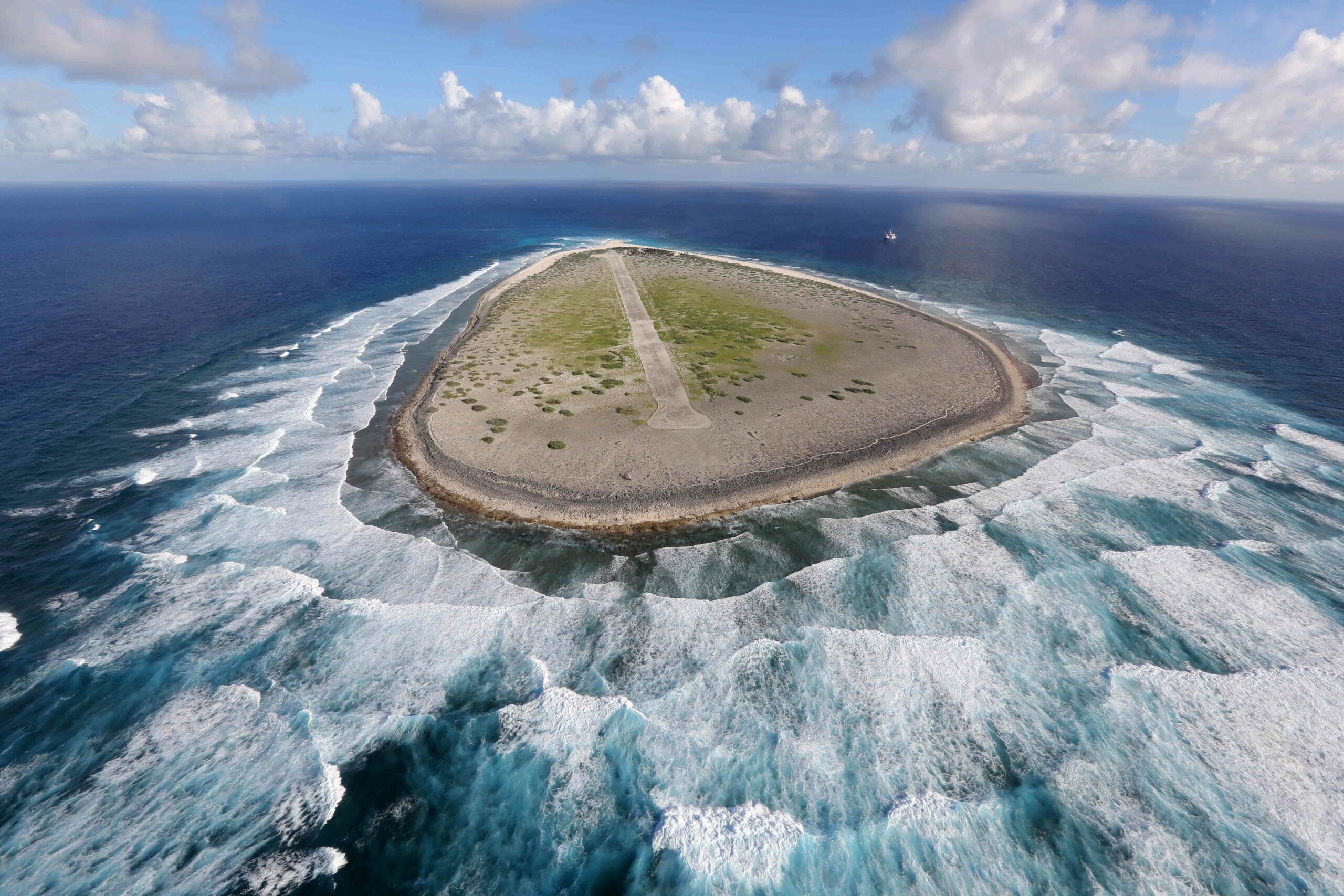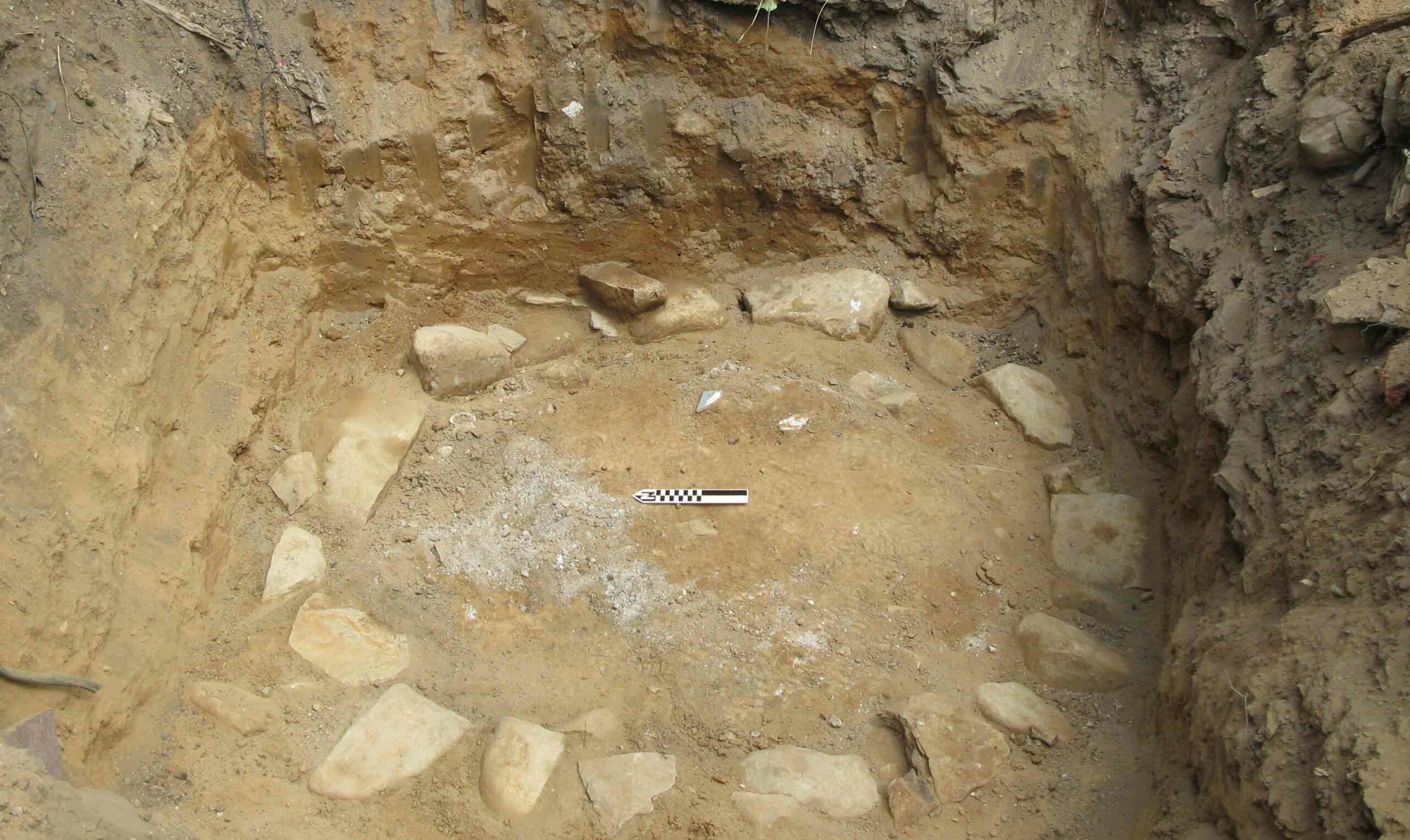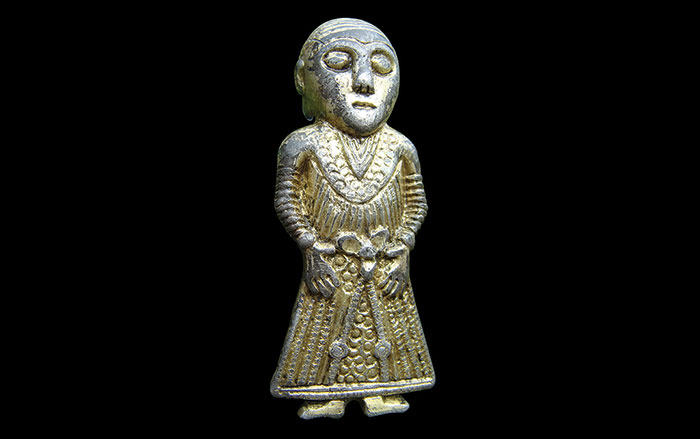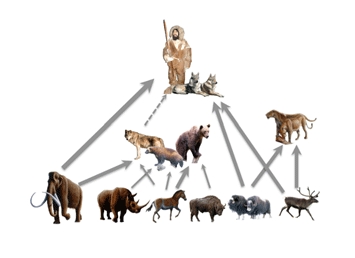
TÜBINGEN, GERMANY—Science Daily reports that the analysis of human and animal fossil bones from a prehistoric site in the Czech Republic shows that the people consumed large quantities of mammoth meat, in addition to using their bones to build structures and carve ivory sculptures. Large numbers of dog remains have also been recovered, but the chemical composition of their bones suggest that they ate mostly reindeer meat, even though other carnivores, such as brown bears, wolves, and wolverines, had access to mammoth meat. According to University of Tübingen researcher Hervé Bocherens, traditional populations in northern regions often feed their dogs with food that they do not like. The dogs from Předmostí, which may have served as transportation helpers, were probably restrained to keep them from feasting on tasty mammoth. The other carnivores probably scavenged the carcasses. To read about art made by Paleolithic people living in what is now Germany, see "New Life For Lion Man."


